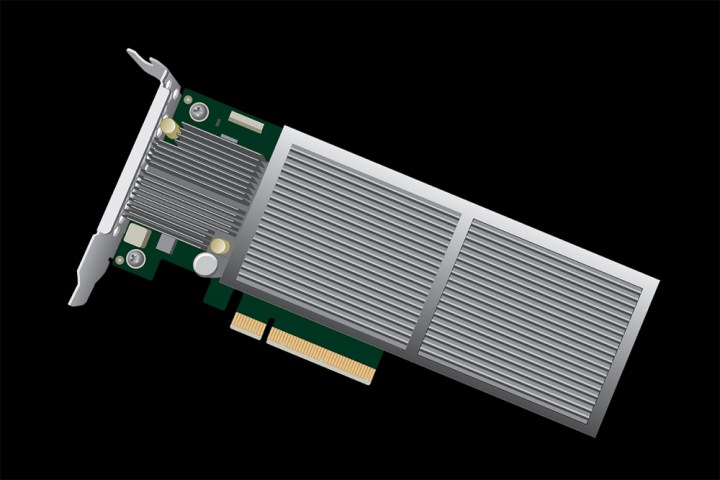
According to Seagate, that score is 4GB/s faster than the previous record for a production SSD. And that’s not all that’s impressive about the the drive. The speedy unit also meets the specifications laid out by the Open Compute Project, allowing for a high level of compatibility across data centers and enterprise applications.
Traditional eSATA SSDs, like those found in most PCs, are limited by the protocol to around 500 megabytes per second, even if the flash could theoretically be written and read faster. PCIe has an order of magnitude higher theoretical speeds, which has allowed users to pump NVMe drives to their full potential. In our own tests, we’ve found these drives reaching almost 1.5 GB/s on a good day.
If that 10 GB/s speed seems like overkill, Seagate is also preparing an eight-lane version of the same drive. It’s still capable of 6.7 GB/s, a record speed for its own class, and plenty fast for almost any use. It’s designed for companies that aren’t quite ready to support the full deal, either in terms of budget or power.
Perhaps best of all, Seagate’s powerful new SSDs are actually production-ready, and will be rolling out in greater numbers starting this summer. That doesn’t mean you’ll start seeing it pop up in gaming rigs – far from it – but technology like this does tend to trickle down eventually. It’s also wise to expect an exorbitant price tag for the privilege, one that will weed out all but the most serious data-minded companies, although no word on exactly what that number will look like.
Editors' Recommendations
- SSD buying guide: how to pick the right SSD for your needs in 2023
- The Samsung 990 Pro SSD is built for PS5 and DirectStorage
- TikTok continues rolling out its Friends tab, replacing Discover
- This new TeamGroup SSD is one of the fastest drives ever
- This SSD is one of the fastest we’ve seen, but you probably can’t use it


